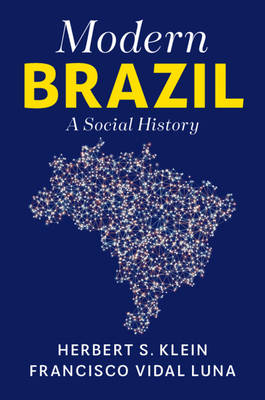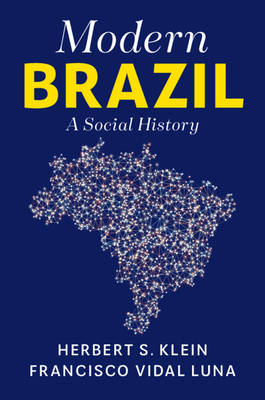
Door een staking bij bpost kan je online bestelling op dit moment iets langer onderweg zijn dan voorzien. Dringend iets nodig? Onze winkels ontvangen jou met open armen!
- Afhalen na 1 uur in een winkel met voorraad
- Gratis thuislevering in België vanaf € 30
- Ruim aanbod met 7 miljoen producten
Door een staking bij bpost kan je online bestelling op dit moment iets langer onderweg zijn dan voorzien. Dringend iets nodig? Onze winkels ontvangen jou met open armen!
- Afhalen na 1 uur in een winkel met voorraad
- Gratis thuislevering in België vanaf € 30
- Ruim aanbod met 7 miljoen producten
Zoeken
€ 59,45
+ 118 punten
Uitvoering
Omschrijving
Herbert S. Klein and Francisco Vidal Luna present a sweeping narrative of social change in Brazil that documents its transition from a predominantly rural and illiterate society in 1950, to an overwhelmingly urban, modern, and literate society in the twenty-first century. Tracing this radical evolution reveals how industrialization created a new labor force, how demographic shifts reorganized the family and social attitudes, and how urban life emerged in what is now one of the most important industrial economies in the world. A paradigm for modern social histories, the book also examines changes in social stratification and mobility, the decline of regional disparities, education, social welfare, race, and gender. By analyzing Brazil's unprecedented political, economic, and social changes in the late twentieth and twenty-first century, the authors address an under-explored area in current scholarship and offer an invaluable resource for scholars of Latin American and Brazil.
Specificaties
Betrokkenen
- Auteur(s):
- Uitgeverij:
Inhoud
- Aantal bladzijden:
- 434
- Taal:
- Engels
Eigenschappen
- Productcode (EAN):
- 9781108733298
- Verschijningsdatum:
- 16/04/2020
- Uitvoering:
- Paperback
- Formaat:
- Trade paperback (VS)
- Afmetingen:
- 163 mm x 226 mm
- Gewicht:
- 589 g

Alleen bij Standaard Boekhandel
+ 118 punten op je klantenkaart van Standaard Boekhandel
Beoordelingen
We publiceren alleen reviews die voldoen aan de voorwaarden voor reviews. Bekijk onze voorwaarden voor reviews.











